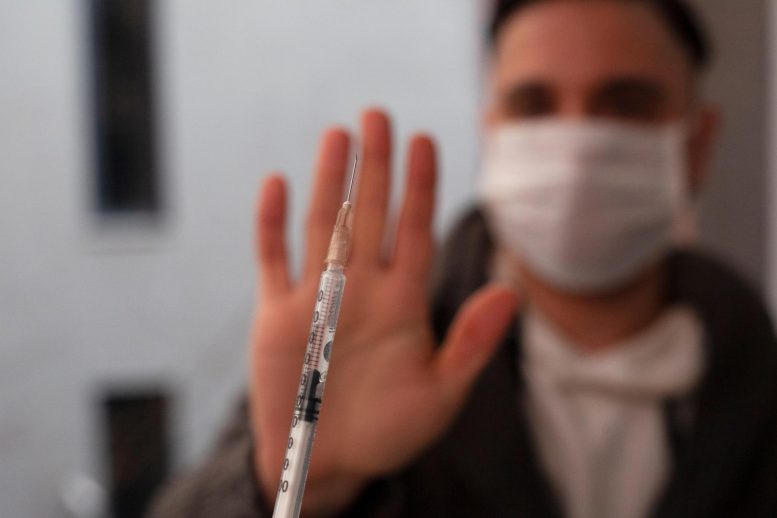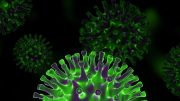
A Polish study brings up the impact of the actively communicated attention-grabbing anti-vaccine arguments, as well as the overall skepticism towards the Big Pharma, science and health providers.
In the context of the COVID-19 pandemic, it becomes essential to understand why people refuse or indefinitely delay vaccination. A new Polish study, conducted at the Jagiellonian University (Krakow, Poland) and the SWPS University of Social Sciences and Humanities (Wroclaw, Poland) and published in the peer-reviewed scholarly journal Social Psychological Bulletin, brings up the impact of the active spread of attention-grabbing anti-vaccine arguments, as well as the overall distrust in the Big Pharma, science and health providers.
In their study, using data from a total of 492 participants, who have self-identified as either ambiguous towards or opposing vaccination, the research team, led by Dr. Katarzyna Stasiuk, conclude that vaccine deniers are mostly led by a generalized negative attitude to vaccines.
The arguments were collected during a conference, where people opposing the vaccination presented their stand on the subject. Curiously, even though they often reported their stance to be founded in their own or observed negative experience with vaccines, when asked about their reasoning, they were rather vague in their explanations. Many reported that they didn’t remember the source of information, while others attributed autism, allergies, or children being sick to vaccines, despite the missing evidence of correlation.
Such instances can be explained with people’s tendency to remember negative reports, even if those have simply been read online.
“Confirmation bias consists of an individual actively seeking information consistent with their pre-existing hypothesis, and avoiding information indicative of alternative explanations,” say the researchers. “Therefore, a pre-existing negative attitude toward vaccines may cause individuals to interpret negative symptoms as consequences of vaccines, further reinforcing the negative attitude.”
The research team also reminds that when given similar information from multiple sources, people tend to forget how they have learned it, often confusing it with their own experience or those of their close ones. As a result, they could turn into yet another source of misinformation.
All in all, vaccine deniers believe that vaccines lead to serious negative side effects, don’t protect the individual and the society against infectious diseases, and are not sufficiently tested before introduction. Further, they are convinced that anti-vaccination leaders are better informed about vaccines than physicians, and that it is rather the former that act in the public interest.
Interestingly, when compared to the group who self-reported as vaccine-hesitant, opponents of vaccines were more inclined to believe that modern medicine is able to handle an epidemic.
Meanwhile, the vaccine-ambiguous participants in the survey were mostly confident in the efficacy of vaccines, as well as them being properly researched. However, they were still susceptible to the anti-vaccine movement’s statements about side effects and the “Big Pharma conspiracy”. Moreover, if presented with well-prepared arguments, they are likely to become vaccine deniers.
In conclusion, the scientists note that existing evidence is quite pessimistic about the possibility of changing the attitudes of vaccine opponents, and thus recommend that efforts need to be focused on persuading the vaccine-ambiguous group, so that their concerns about negative effects are reduced. They also suggest that they need to be presented with prosocial arguments about why medical professionals recommend vaccines, in order to strengthen the positive points of their attitude.
Reference: “Profiles of Vaccine Hesitancy: The Relation Between Personal Experience With Vaccines, Attitude Towards Mandatory Vaccination, and Support for Anti-Vaccine Arguments Among Vaccine Hesitant Individuals” by Katarzyna Stasiuk, Józef Maciuszek, Mateusz Polak and Dariusz Dolinski, 30 July 2021, Social Psychological Bulletin.
DOI: 10.32872/spb.6525









1. Against the E484K strains, the present vaccines are moderately effective at preventing INFECTION, and are 90% effective at preventing death.
2. The L452R strains have vaccine resistance, and are almost twice infectious.
3. Since I must continue wearing an N100 mask and goggles plus rigorous antiseptic protocol, regardless of vaccination, I will simply continue doing what has already been effective. I.e., 99.9% physical barrier is better than a vaccine.
4. If I had significant interaction with the public, I would have need for vaccination. Instead, I work in a clean room, and am proficient at being aware of my enviromental contamination.
5. I will be happy to get a broad spectrum vaccine for ALL Corona Virus types including Rhinovirus.
6. No need to get sick from vaccine twice for 5 days.
7.toxoplasmosis is a parasite and not a virus and I am proficient in not cleaning the litter box and such as
What’s wrong with you people did it ever dawn on you that we have researched for the last 18 months and determined it’s all a fraud. Christine Massey M.Sc has received 90 responses from academic institutions around the world for proof of Covid-19 existence and they all admit the evidence does not exist, and you pump out this line of crap. i honestly don’t know how to politely respond. And the audacity to incorporate “cognitive dissonance” into the picture ices the cake. fluoridefreepeel.ca
Maybe they aren’t idiots? Maybe they even finished high school science and know that science doesn’t deal in “proofs”, and hasn’t for almost a century. See Popper and the ‘Problem of Induction.’
So yeah, anyone who stopped learning in 1935 might expect “proofs”, but no one else.